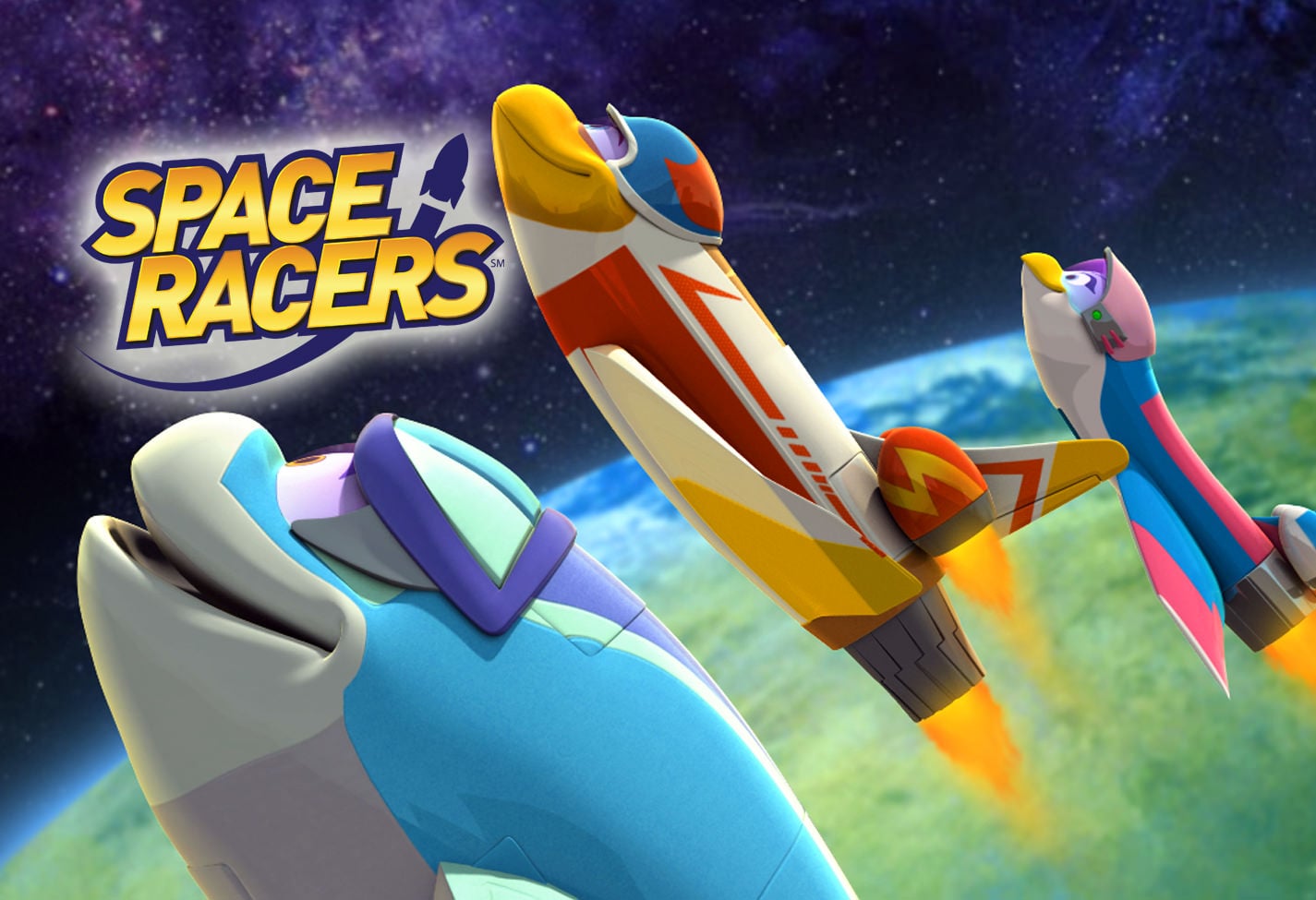Blastoff! A new space show aimed at preschoolers aims to showcase the joy of space, while making sure that the youngsters learn as much as they can about the science.
Space Racers
(which is being distributed by Maryland Public Television) is coming to television screens across several countries this year, including the United States.
Universe Today
was lucky enough to see one of the episodes of the series, which is made up of two short animated segments (and a live-action section in between) featuring the spaceship characters Eagle, Hawk, Robyn, Starling and Raven. There were some fun action segments showing them zooming towards the Sun and also doing a race on Mars. And in between this, preschoolers get to learn about things such as how a solar eclipse works (and how to look at it safely).
"It's entertaining, but there's also a very strong sense of making sure there is a curriculum part of the show that is based on science," said Richard Schweiger, the creator of
Space Racers
and its executive producer. "NASA helped us develop that curriculum."
Schweiger is the parent of two young boys, 10 and 8, and told Universe Today
the idea for
Space Racers
germinated when they were around 3, 4 and 5. At the time, vehicle shows were very popular for them, such as
Thomas the Tank Engine
, the
Cars
movie and
Jay Jay The Jet Plane
. He also brought them on visits to the Smithsonian National Air and Space Museum, which he called the "coolest place in the world to bring a four-year-old."
As an entrepreneur, Schweiger saw an opportunity. "That's when I said, 'Oh my gosh, what if we did a vehicle show where the characters were spaceships?' "
Working with a friend from college who has a masters in creative writing, Schweiger developed a screenplay and received an award in 2009. "That gave us some confidence and credibility," he said.
He formed a company in January 2010 and raised some money from friends, family and a few other interested people. Schweiger's group determined that instead of a film, the much better platform would be television. And they knew exactly who they wanted for subject matter experts.
[caption id="attachment_110061" align="alignnone" width="580"]
A still from Space Racers, a half-hour preschool series premiering in 2014. Credit: SpaceRacers.org[/caption]
"It was a simple phone call from Richard Schweiger. He explained the effort, the
Space Racers
team, what they were doing, and that they were looking for subject matter experts to review and clarify the information," Ruth Netting, NASA's communications and public engagement director, told
Universe Today
.
A preschool audience was a first for NASA, but the agency relished the challenge. Officials determined it would be best to "show and tell" certain concepts rather than use technical terms. There also were subtle adjustments for scientific accuracy, such as when the characters talk to each other in space. Because sound doesn't carry there, NASA suggested the characters' voices sound like they're talking over a radio.
Science not only means teaching the concepts, but showing that you don't always get things right the first time, added Tom Wagner, a NASA cryospheric scientist. "It includes learning from their elders and making mistakes. I don't know if kids always get this today. They see stories about an app created and somebody making $19 million off of one little thing." A "discovery aspect" is also included, meaning that kids see characters forming hypotheses and then changing their minds as more evidence comes in.
[caption id="attachment_110067" align="alignleft" width="250"]
A still from Space Racers, a half-hour preschool series premiering in 2014. Credit: SpaceRacers.org[/caption]
The U.S. national premiere will occur on May 2, but the show is already showing in New Zealand (where it premiered Feb. 15).
Space Racers
' international distributor (CAKE) also has commitments signed with the following locations: France, Russia, Norway, Sweden, Finland, New Zealand, Israel, Taiwan and parts of Africa, with dubbing taking place for those countries who have another language besides English as a first language.
Season 1 has 26 episodes in it. There are no immediate plans to produce a Season 2, but depending on how Season 1 is received, that is something Schweiger says he is willing to consider, along with merchandising for the $5 million production. Check out the
Space Racers website
for more information, and preschool activities.
 Universe Today
Universe Today
